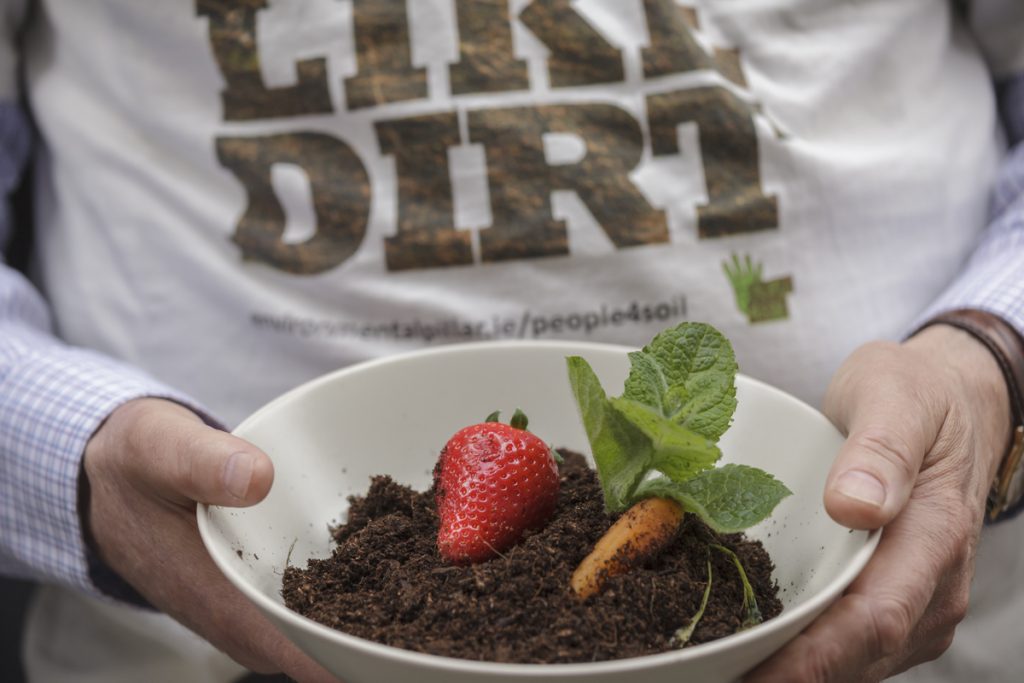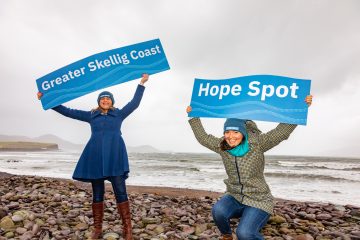Sustainable model key to save our fragile eco-system

February 21st, 2019
The Government must follow the sustainable development goals (SDGs) and ensure environmental laws are enforced to save our increasingly fragile eco-system, the coordinator of Ireland’s largest environmental coalition has said.
Speaking during the closing session of the National Biodiversity Conference this afternoon, Michael Ewing of the Environmental Pillar said that we are failing to protect our environment in line with the targets outlined in the UN SDGs.
The 17 global goals seek to achieve over 150 targets aimed at ending poverty, ensuring prosperity for all people by 2030 and protecting our eco-systems both on land and at sea.
Mr Ewing highlighted the importance of a far more sustainable use of Ireland’s marine resources as 90 per cent of our territory is within the marine environment.
Mr Ewing said that we need to protect our “rapidly diminishing marine biodiversity” by fully implementing the Marine Strategy Framework Directive.
He also called on the State to immediately commence the process for designating Marine Protected Areas (MPAs) to protect this “precious resource” that we exploit “mercilessly” through overfishing.
Ireland has an international target of protecting 10 per cent of waters by 2020 and 30 per cent by 2030. Currently, just over two per cent of Irish waters are protected, the second lowest percentage in Europe.
Mr Ewing also pointed to the need to sustainably use our land-based ecosystems such as forests and to reverse land degradation, in particular, the depletion of soils that have no legal protection in Europe.
Soil degradation now affects about one-third of the global land area with widespread consequences including soil erosion, desertification, nutrient loss, and pollution.

Edible soil dish to promote the 2017 People4Soil Campaign Photo: Niall Sargent
Building blocks of life
Mr Ewing called for society to “stop treating soil like dirt” as they are being “poisoned, compressed, covered over, degraded and allowed to wash away”.
“Soil is an essential non-renewable resource. It takes 1,000 years for just 1cm of topsoil to form and are also extraordinary ecosystems in their own right,” Mr Ewing said.
The wider agriculture system is ignoring the importance of soils and their fertility, Mr Ewing added, resulting in the “creation of monoculture meadows”.
This system has severely impacted biodiversity and “made nitrogen fertiliser junkies of farmers”, he said, resulting in huge climate impacts in Ireland. Agriculture accounts for one-third of Ireland’s total emissions.
Mr Ewing added that our forestry model of Sitka Spruce monoculture plantations grown for clear-fell is “having multiple negative impacts on biodiversity”, resulting in major soil erosion, siltation and pollution of surface waters with “alarming concentrations” of chemicals.
A reform of the State’s forestry programme is needed to ensure that the number of native broadleaves planted in Ireland is brought in line with the EU average, he said. There is also a need to develop and resource a national hedgerow conservation strategy, he said.
Ireland’s overall forest cover sits at around 10.5 per cent, well short of the European average of 33.5 per cent average. A recent EPA study highlighted a high level of deforestation in natural and semi-natural woodlands.

3rd anniversary – Sustainable Development Goals.
Seventeen ambitious targets
Mr Ewing echoed the sentiment of President Michael D Higgins who earlier told the conference that sustainable development is unachievable unless we change our approach and “achieve symmetry between ecology, economics and ethics”.
“The more we eat into this natural capital, the less resilient we will be to the shocks that we know we should expect. That, my friends, is the essence of an unsustainable system of living. A system that, for all our sakes, must change,” Mr Higgins said.
“Economic models that have championed the unsustainable path on which we have been hurtling are surely inadequate to guide us toward the necessary realignment of economics, ecology and ethics.”
Inger Andersen, director general of the International Union for Conservation of Nature, earlier pointed to the importance of the 17 “ambitious” SDGs in drawing a “detailed and formidable picture” of what the world could look like in 2030.
“It’s a world free of poverty and hunger. It’s a healthier, better-educated world with greater social justice, clean water, and sanitation,” she said.
“It’s a world where the trend of dying biodiversity has been reversed, thanks in great part to the fact that our oceans and terrestrial ecosystems have been given a new lease on life.
“This is the world that we want.”
[x_author title=”About the Author”]







